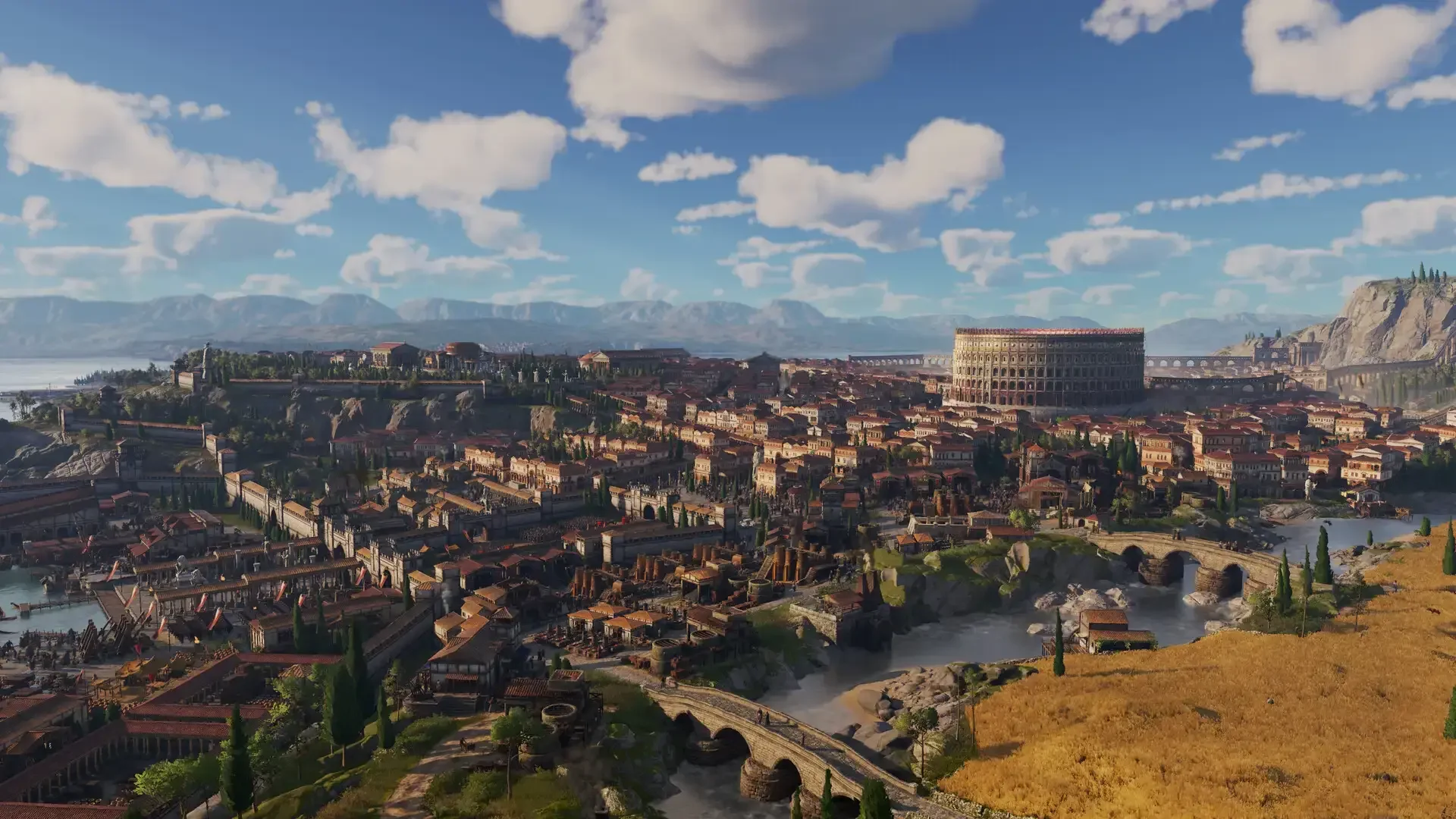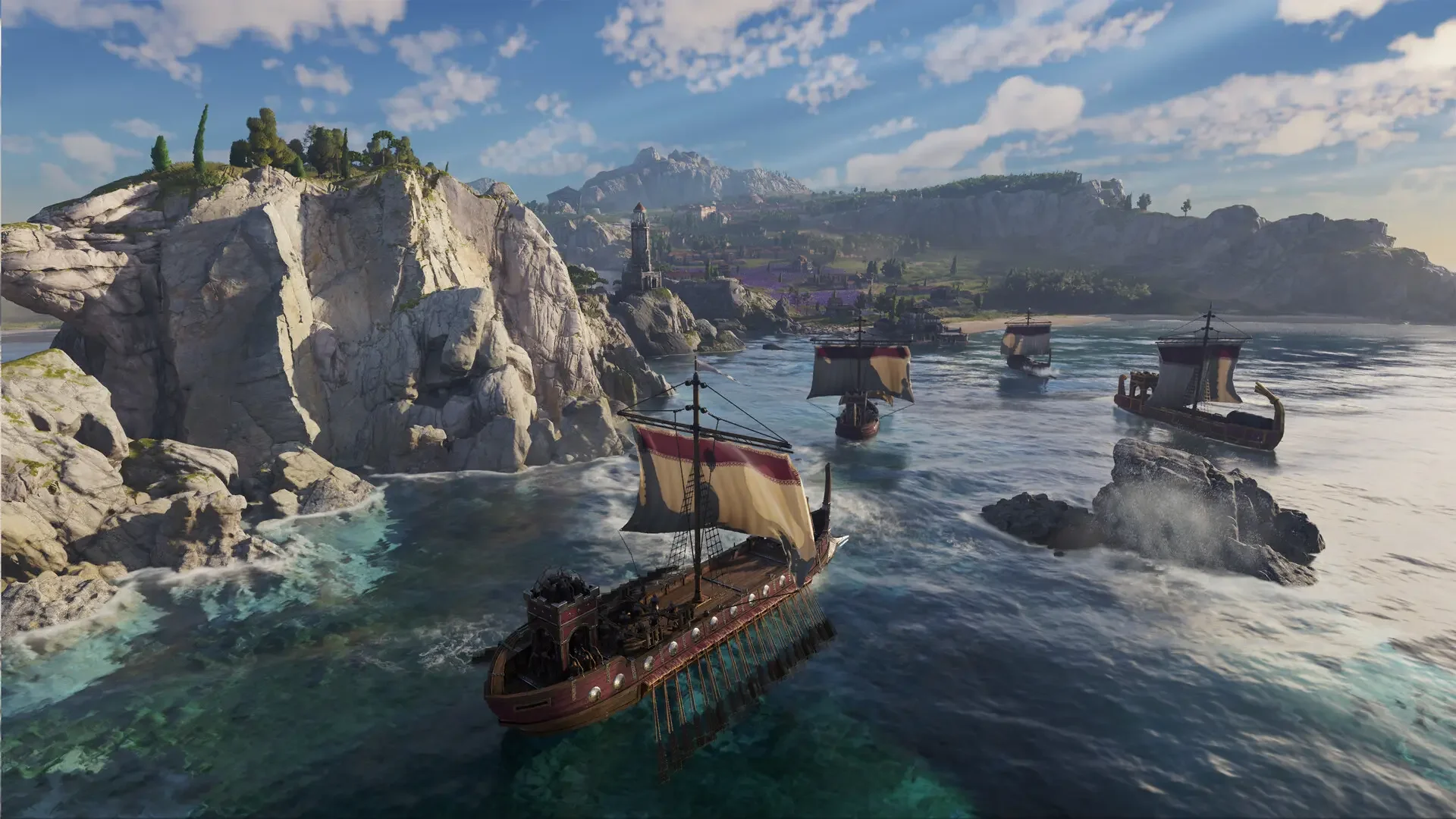Anno 117 Is Here to Eat Your Life. Don't Go Bankrupt on Day One.
It's finally here. Anno 117: Pax Romana launches tomorrow, November 13, and my free time is officially scheduled for demolition.
The game is exactly what I expected: a gorgeous, soul-consuming spreadsheet obsessed with sausages and planks. Your job, as the new Governor, is to build a glorious Roman city in either Latium or the foggy, Celtic-inspired Albion. You have to manage citizens, build massive production chains, and keep your competitors in check.
It's a lot. And it's very, very easy to screw up. Before you lose your first city tomorrow to a rebellion or, more likely, a catastrophic economic death spiral, here are my top tips for building an empire that doesn't immediately collapse, gathered by countless hours in the demo, loads of scrapping forums, youtube videos, and more.
The Golden Rule: Build Wide, Not High
This is the most important piece of advice in this entire guide. If you do this, you will not go bankrupt.
Your first instinct, as an Anno player, is to upgrade your houses. You see the little "upgrade" arrow, and you click it. Do not do this.
Here's the trap: when you upgrade a Tier 1 (Libertus) house to a Tier 2 (Plebeian) house, you lose that Tier 1 worker. If you upgrade all your houses at once, your entire logging and fishing industry will collapse overnight because you just "promoted" your entire workforce into unemployment.
The real strategy is to build wide, not high.
Your service buildings, like the Market, have a fixed maintenance cost. Your goal is to get the most tax revenue for that cost. So, build your Market and then fill every available housing spot in its service radius with Tier 1 houses before you even think about upgrading. Get a massive, stable income from your basic workers. Once you're rich and have a surplus of workers, then you can start slowly upgrading a few houses to Plebeians.
Your First Steps (And How Not to Mess Them Up)
For your very first game, just play the campaign. It does a good job of teaching you the core mechanics. I'd also recommend starting in Latium, as it's a bit easier than Albion.
The second you load in, hit the pause button. Use it. A lot. Plan your layout without your treasury bleeding out.
Your first build order is always the same: roads, and lots of them. Every single building, from a woodcutter to a warehouse, must be connected by a road to function.
After that, it's all about planks. You need a Woodcutter in a dense forest, and a Sawmill (or Carpenter) right next to it to turn those logs into planks. Planks build almost everything else. Follow that up with a couple of Fish Huts for food and a Warehouse to move goods.
Plan Your City Like a Pro, Not a Peasant
Don't just build a random grid. You'll regret it in an hour.
The smart way is to leave a wide, open "main street" down the middle of your settlement. This is where your service buildings (Market, Tavern, Grammaticus) will go.
Then, build your housing blocks in a "T-Shape" extending from that central hub. A T-shape layout is more efficient and covers more houses within the service radius than a simple square.
And for god's sake, use the planning mode (blueprint mode). You can place blueprints for buildings you haven't even unlocked yet, allowing you to perfectly plan your city's footprint long before you can afford to build it.
The Supply Chain is God (And How to Tame It)
You will not have every resource on your starting island. It's impossible. You will need to expand to find things like Lavender (for soap) or other fertilities.
To do this, send a ship loaded with planks and tiles to a new island and build a trading post. This will cost you money and a permanent tax maintenance fee, so make sure it's worth it.
Now, set up your automated trade routes. This is where people screw up.
Your trade ship will happily sail to your main island and steal all of your planks to ship to your new colony, starving your home construction. To stop this, click your Trading Post and set a minimum stock level. You can tell it, "Do not pick up planks if the stock is below 50". This is a lifesaver. You can also use this same menu to automatically sell any surplus goods to AI traders, which is a great passive income.
A Governor's Quick-Fire Guide to... Everything Else
You've got the core strategy. Here are the other quick tips you need to know for launch day.
How to Upgrade Your People
Your population needs goods and services to be happy and upgrade.
Tier 1 (Liberti): They are simple. They need Oatmeal, which means an Oat Farm + Kitchen. They also need Tunics, from a Hemp Farm + Spinner.
Tier 2 (Plebeians): They get fancy. They need Bread (Wheat Farm -> Mill -> Bakery) or Garum (a fish sauce made from Mackerel + Salt). They also need Sandals (Pig Farm + Salt Garden -> Tannery -> Clothier) or Soap (Pig Farm -> Tallow Chandler -> Soap Boiler).
You don't have to meet all needs to upgrade , but fulfilling them all makes you rich.
How to Not Die in a Fire
The bigger your city gets, the more it wants to self-destruct. You'll face fires, diseases, and riots.
You must build services to counter this. The Vigilis (fire safety) , Custodia (unrest) , and Mediki (disease) are essential. (Or their equivalents: City Watch, Firefighters, Doctors ).
Be smart about where you build. The Bakery, for example, has a high fire risk. Don't build it in the middle of your housing block, you maniac.
How to Use Specialists
Your Villa (Governor's Residence) isn't just for show. It houses Specialists, who give powerful radius-based buffs. You get them from quests or by buying them from traders.
Pro-tip: If a trader's specialist selection sucks, you can pay a fee to "re-roll" their inventory.
If you want to spread those buffs to other parts of your island, you can build Offices (subsidiary offices), which act as mini-Villas.
How to Fight (A Little)
For the first time in Anno, you can customize your ships at the Shipyard. You can add rudders for speed or reinforced hulls for more health, though it'll cost you more in maintenance.
You can also build land troops. To invade an island, load your troops onto a transport ship, sail over, and unload them. To win, you must destroy the enemy's main Villa. So, make sure to defend your own Villa with walls and towers.
That's the briefing. The game unlocks tomorrow. Go build Rome. Or, more likely, watch it all burn down, go bankrupt, and then restart, just like the rest of us. Good luck, Governor.

